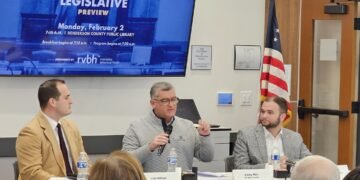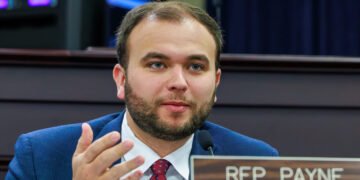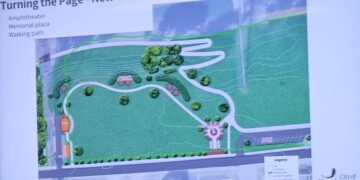Henderson County Judge-Executive Brad Schneider said that the county government and Kenergy have come to an agreement that will allow for a great many—“if not all”—county residents the ability to obtain high-speed internet by the end of the year.
Schneider in Tuesday’s Fiscal Court meeting said the Fiscal Court will use $4 million in American Recovery Plan Act funds currently sitting in the bank for the deal.
In it, Kenergy will get the same percentage from the $4 million in ARPA funds as the percentage of the total residences in the Kenergy service area of Henderson County that have infrastructure in place to connect to high-speed internet by the end of the year.
For example, there are about 8,300 residences in the Kenergy service area, according to Schneider. If half of those—4,150—have the infrastructure in place to connect to Kenergy internet service by the end of the year, then the company would get 50% of the $4 million ARPA funds, or $2 million.
Kenergy has been working in partnership with Conexon to get fiber available for county residents. Work on the project has recently sped up, fueled by a $10 million grant from the state in the spring and this up-to $4 million deal with Fiscal Court, said Tim Lindahl, the president and CEO of Kenergy.
Lindahl said Kenergy’s goal is have service available to all of its Henderson County service area by Dec. 31.
Schneider echoed that in the Fiscal Court meeting.
“By the end of the calendar year, they will have a substantial amount of this done, if not all,” Schneider said.
Schneider said if a homeowner does not want to connect to Kenergy’s internet services, that person does not have to.
Conexon is in charge of getting the fiber lines in place and will provide internet service to residents, Lindahl said.
Lindahl called the work currently occurring to install the fiber lines in Henderson and Daviess counties as the fastest or second-fastest large installation in the nation.
One point of clarification about the project is the difference between the ability to connect and connection. The ability to connect means that the proper infrastructure is in place to allow a residence to obtain internet. Connection requires a technician to come to the residence and set up the internet service. There is a waiting period after infrastructure is in place before an individual residence can get set up, officials at the Fiscal Court meeting said.
Schneider said one of the approved uses of the federal ARPA funding is for rural broadband installation.
The agreement will need to be formally approved at a future Fiscal Court meeting.
In other news from Tuesday’s Fiscal Court meeting:
- Property Valuation Administrator Andrew Powell presented deputy, Hannah Troutman, with a plaque honoring her as the Kentucky PVA Association’s 1st District Deputy of the Year. Troutman was given that honor at a recent state PVA conference that Powell attended.

















